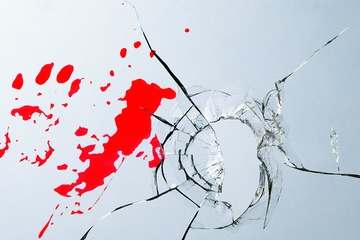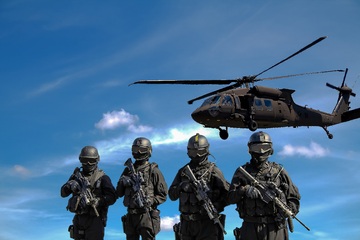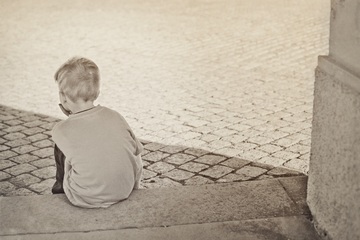The war in Ukraine is a real goldmine for mafia clans in Italy. They profit from illegal human and arms trafficking, adoptions and property deals, among other things. The Italian government believes that it can bring the problem under control.
Alarming assessments from anti-mafia authorities
The mafia has always made money from crises of all kinds, says German-Italian journalist Sandro Mattioli. While the world holds their breath regarding the war in Ukraine, Italy’s organised crime is finding plenty of lucrative opportunities. Federico Cafiero De Raho, head of the national anti-mafia authority, and Nicola Gratteri, public prosecutor for Calabria, are sounding the alarm. As always, the mafia works with foresight. ‘While we are still dealing with the present, the clans are already working on the business of tomorrow,’ warns De Raho.

Human trafficking, prostitution and illegal adoptions
Human trafficking is particularly lucrative, with Italian clans cooperating with the Russian and Ukrainian mafia. Young Ukrainian women fleeing with their children easily fall into the clutches of criminal organisations. These organisations initially help the women to escape, only to later force them into prostitution and illegally give their children up for adoption. Federico Fossa from the UNHCR reports that hundreds of Ukrainian women and children have already disappeared without trace. The NGO ‘Save the Children’ is therefore calling for a moratorium on adoptions throughout Europe in order to put a stop to these illegal practices.
Illegal property deals
Another profitable business is the accommodation of refugees. Mafia networks masquerading as non-profit organisations take part in public tenders for the care of refugees. In this way, they access the 428 million euros provided by the Italian government and the three and a half billion euros from the EU, which makes the accommodation business particularly attractive.

The Goldmine of arms trade
‘For the mafia, weapons are the gold of wars,’ says De Raho. Arms trading has always been an important economic mainstay for the clans. The longer the war lasts, the more profitable this business becomes. In the course of this business with war, the mafia can also replenish its own arsenals of weapons – as was the case during the Bosnian war (1992-1995). Even today, leftover stocks from this conflict are found during raids.
Money laundering by Russian oligarchs
With the sanctions against Russian oligarchs, the demand for the mafia’s money laundering services is growing. The clans that launder billions from the drug trade every year have extensive experience in this area. They transfer Russian assets to safe tax havens in return for generous commissions or invest in cryptocurrencies that are less affected by sanctions. Last year, 13 billion euros flowed from Russia to Italy, five billion of which were classified as suspicious.
Italian government is ‘prepared’
At least politicians feel responsible for the problems. ‘The government is aware that the armed conflict in Ukraine is opening up dangerous new opportunities for mafia clans to conduct illegal business,’ explained Italian Interior Minister Luciana Lamorgese recently. ‘But we are prepared.’ The government has experience in pursuing illegal financial flows and combating money laundering thanks to decades of fighting the mafia. Just last week, Prime Minister Mario Draghi announced that the state had confiscated Russian assets totalling 800 million euros in the first month of the war; according to media reports, this has since grown to more than one billion euros. No specific action was taken against human trafficking and the adoption of stolen Ukrainian children.

Translated by Anna Smith
#UkraineKrieg #Menschenhandel #Adoption #Mafia #Italien #AgainstHumanTrafficking #GegenMenschenhandel #EndExploitation #EndTrafficking #HopeForTheFuture #Österreich
